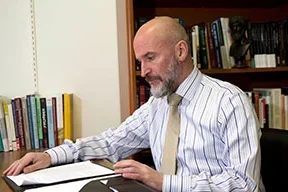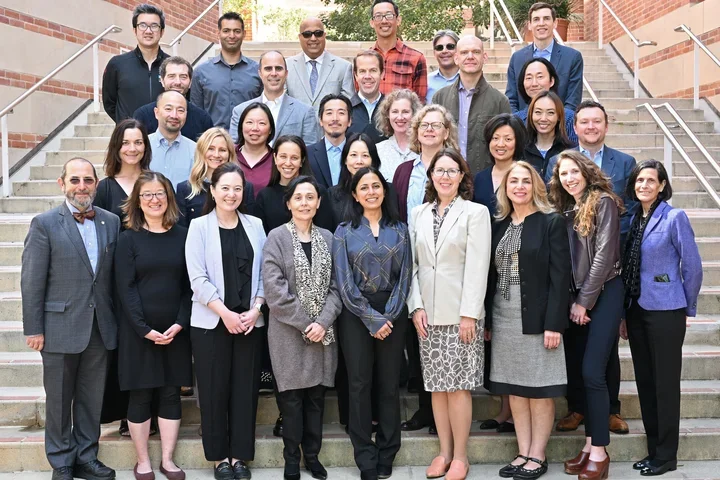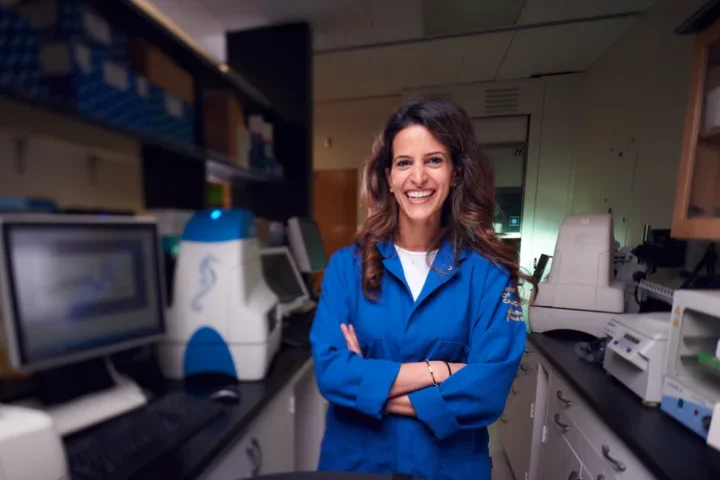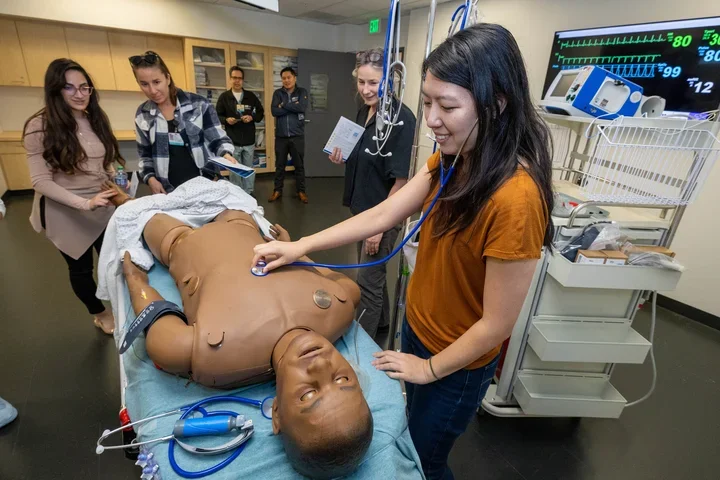Ethics in Medicine
How UCLA Medical Students Learn to Tackle Tough Issues

A Day in the Life of Dr. James Hynds, Senior Clinical Ethicist
We often think of ethics in binary terms—right or wrong. But when it comes to ethics in medicine, that kind of dichotomy is unhelpful, says James Hynds, LLB, PhD, Senior Clinical Ethicist at the UCLA Health Ethics Center.
James A. Hynds helped developed the ethics curriculum that is integrated into medical students' first and second years at the David Geffen School of Medicine at UCLA (DGSOM).
A Moral Endeavor
"A better way of understanding ethics is to think of it in terms of values," Dr. Hynds says. In healthcare, he points out, "The values at play are of the highest order ... the value and meaning of life, of love, of ability and disability, of suffering and of watching suffering, and of dying and allowing to die." Medicine, he says, "is, by its very nature, a moral endeavor."
Ethical issues in medicine emerge every day. Medicine involves choices, judgment calls and nuanced decisions that patients, clinicians and family members may approach in different ways for different reasons. How clinicians handle these moral dilemmas has a direct impact on the quality of care and the patient experience. While some academic medical centers—like UCLA Health—have clinical ethicists on staff to assist in these situations, most physicians and their patients face these issues alone.
Ethics Curriculum

To reflect the importance of medical ethics in the practice of medicine, formal ethics learning is integrated into all eight blocks of the DGSOM Phase 1 curriculum. Dr. Hynds, who has a law degree as well as a doctorate in bioethics, was instrumental in developing this comprehensive ethics curriculum that encourages informed dialogue and reflection on the nature and goals of medicine.
Ethics is not about teaching rules to solve the moral dilemmas that occur every day in clinical practice, Dr. Hynds says. Rules can too easily become obsolete, especially with the rate of change in medicine. The dilemmas of medicine are best addressed by morally competent physicians "who have an intuitive grasp of what it means to be a physician and practice medicine authentically."
Critical Engagement
The ethics curriculum at the David Geffen School of Medicine at UCLA therefore emphasizes the importance of "fostering critical engagement with the historic values of the profession of medicine." That involves confronting the demons of the past—practices performed in the name of medicine that would be clearly deemed unethical now—as well as inspiring in future physicians a "creative fidelity" to medicine that allows the profession to "adapt to changing circumstances while remaining unchanged at its core."
In addition to developing curriculum and teaching medical students, Dr. Hynds is also Director of the Clinical Ethics Fellowship Program at the UCLA Health Ethics Center, one of only a handful of similar programs in the country. The two-year program, which is geared for applicants who have already earned a doctorate in ethics or bioethics, provides fellows with clinical experience and research opportunities within a large and diverse academic health center, preparing them to handle the full breadth of ethical issues in medicine today.
The Philosopher Physician
Dr. Hynds starts and ends each year by reminding medical students of a quote attributed to the ancient physician Galen: "The best physician is also a philosopher." Truly great physicians immerse themselves "in the greatest mysteries of human existence: the meaning of life, love, suffering and death," Dr. Hynds says. "A greater professional calling I cannot imagine."
(Related Article: The Modern Hippocratic Oath)



